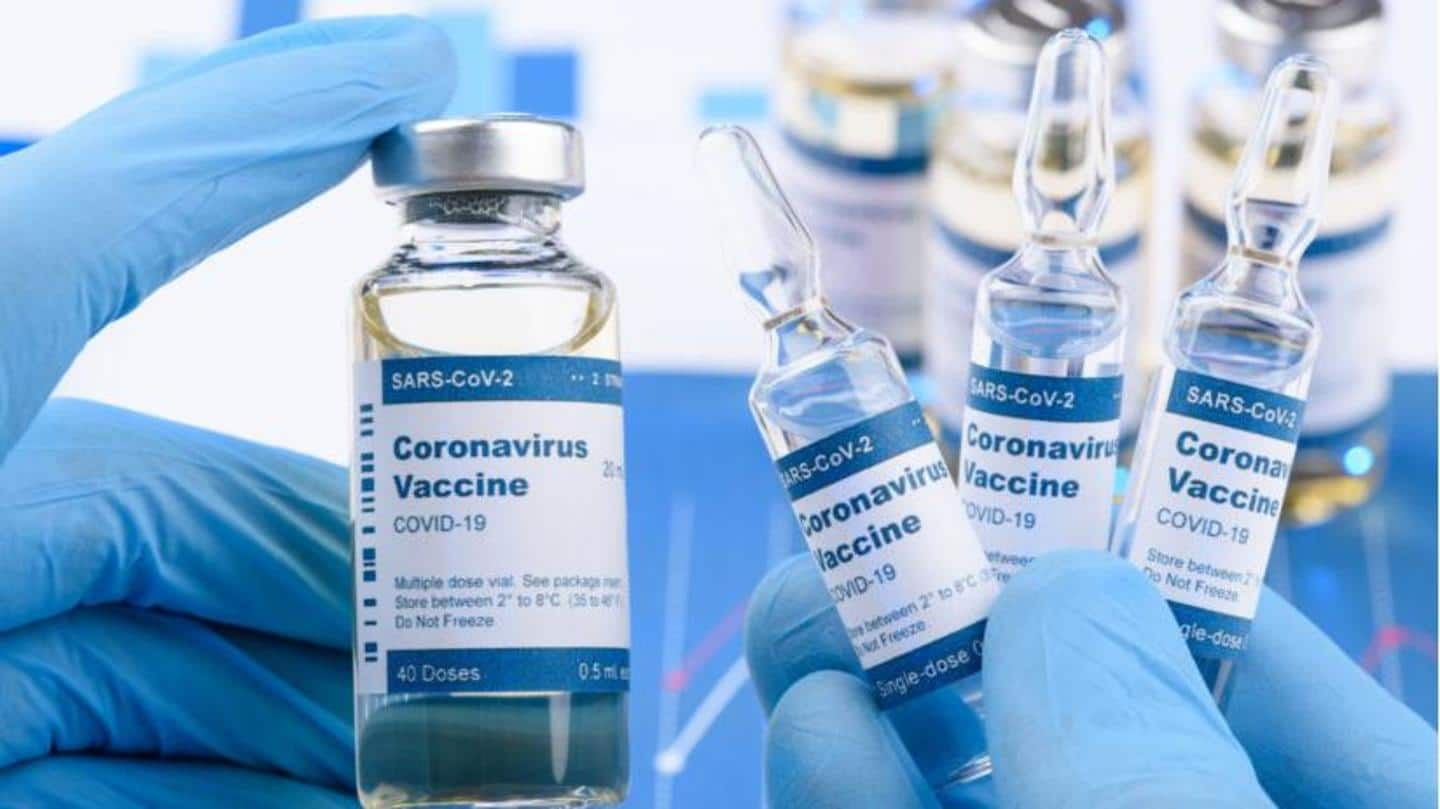
Recovered COVID-19 patients need only one shot of mRNA vaccines
What's the story
People who have recovered from COVID-19 may need only one shot as opposed to the recommended two jabs if they are taking the Moderna or Pfizer vaccines, according to a study that suggests ways to minimize doses when supplies are limited.
The yet-to-be peer-reviewed study, posted in the preprint repository medRxiv, assessed the antibody responses in 109 individuals with and without documented pre-existing immunity.
COVID-19 research
Recovered individuals have a rapid immune response to one dose
According to the researchers, including Florian Krammer from the Icahn School of Medicine, a single dose of mRNA vaccine elicits very rapid immune responses in individuals already possessing antibodies against the coronavirus from previous exposure to it.
"For individuals with pre-existing immunity to SARS-CoV-2, the first vaccine dose immunologically resembles the booster dose in naive individuals," the scientists wrote in the study.
Information
How do mRNA vaccines work in fighting the virus?
In the research, the scientists analyzed mRNA vaccines that use segments of the viral genetic material to enable human cells to make the coronavirus spike proteins. These proteins train the immune system of vaccine recipients to fight the actual infectious coronavirus when encountering the pathogen.
Further details
Post-vaccine antibody levels in recovered patients much higher than others
The post-vaccine antibody levels in recovered COVID-19 patients are comparable to or exceed levels found in those without prior exposure to the virus who received two doses.
Another yet-to-be peer-reviewed study in medRxiv found that antibody levels in recovered healthcare workers started peaking at seven days since immunization, and achieved higher titers and neutralization in 14 days compared to first-time vaccine receivers.
Quote
Peak titers developed after one jab of vaccine
"Although we did not have peak titers for these individuals after natural infection, the titers developed after single vaccination was higher than peak titers in COVID-19 patients, similar to what was described in primary vaccination after two doses of the spike-based mRNA vaccines," researchers said.
COVID-19 vaccination
Recovered people can be placed lower in vaccination priority list
According to the scientists from the University of Maryland School of Medicine, the secondary response occurs through activation of the immune system's memory B cells.
Based on the findings, the researchers recommend a strategy of single-dose vaccination for patients who have already had laboratory-confirmed COVID-19. They said those who have recovered from the disease can be placed lower on the vaccination priority list.
Difference of opinions
It may be safer that everyone gets two doses: Riley
Commenting on the two studies, Eleanor Riley, Professor of Immunology and Infectious Disease at the University of Edinburgh said the vaccines are effectively boosting immunity induced by infection.
However, while the two studies suggest only one dose for those recovered, Riley said incorporating this into a mass vaccination program may be logistically complex. It may be safer to ensure that everyone gets two doses.
Research and findings
Reports should not be relied on to guide clinical practice
The preprint platform, medRxiv, also cautions that the posted reports are preliminary in nature and have not been certified by peer review. "They should not be relied on to guide clinical practice or health-related behavior," it adds.
Lawrence Young, Virologist and Professor of Molecular Oncology, the University of Warwick in the UK, believes this question can be resolved with further studies.
Information
This can be a viable option to solve vaccine crisis
"If future work can confirm this high level of immunity post a single mRNA vaccine in the group of previously infected individuals, this could become a viable option when there are concerns around vaccine supply," Young said.